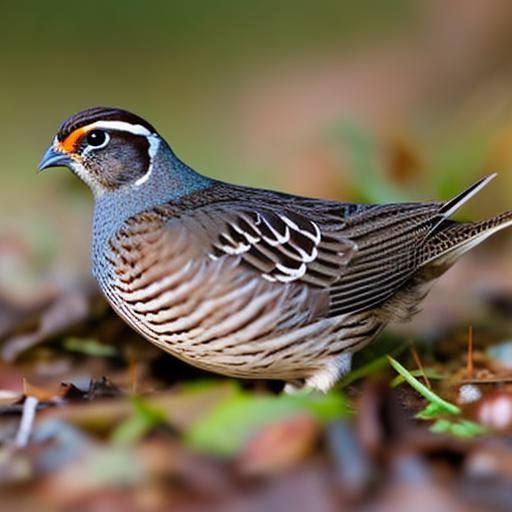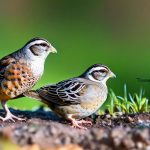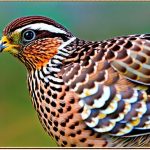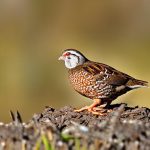Quails are small, ground-dwelling birds that are becoming increasingly popular as pets. They are known for their gentle nature, low maintenance, and ability to adapt to various living conditions. Quails come in different breeds, each with its own unique characteristics and appearances. They are also known for their ability to lay eggs, making them not only great pets but also a potential source of fresh eggs for their owners. Keeping quail as pets can be a rewarding experience for bird enthusiasts and those looking for a unique addition to their backyard or homestead.
Quails are relatively easy to care for and can be kept in a variety of settings, including urban environments with limited space. They are also relatively quiet birds, making them suitable for those living in close quarters with neighbors. Additionally, quails are known for their social nature and can thrive in small flocks, making them an ideal choice for those looking to keep multiple birds. In this article, we will explore the various aspects of keeping quail as pets, including their care and housing requirements, feeding and nutrition, health and veterinary care, behavior and socialization, legal considerations, and final thoughts on keeping quail as pets.
Key Takeaways
- Quail make great pets for those with limited space and a desire for low-maintenance animals.
- Quail require a secure and spacious enclosure with proper ventilation and protection from predators.
- A balanced diet for quail includes a mix of commercial feed, fresh greens, and occasional treats.
- Regular health check-ups and access to a qualified avian veterinarian are essential for keeping quail healthy.
- Quail are social birds that thrive in small flocks and benefit from interaction with their human caretakers.
Quail Care and Housing Requirements
When it comes to caring for quail as pets, it’s important to provide them with a suitable living environment that meets their specific needs. Quails require a secure and spacious enclosure that allows them to move around freely and engage in natural behaviors such as dust bathing and foraging. The enclosure should also provide protection from predators and the elements, as well as adequate ventilation to ensure good air quality. Additionally, quails need access to clean water for drinking and bathing, as well as a comfortable nesting area where they can lay their eggs.
In terms of housing, there are various options available for keeping quail, including hutches, aviaries, and custom-built enclosures. The size of the enclosure will depend on the number of quail being kept, with a general rule of thumb being at least 1 square foot of space per bird. It’s important to provide a substrate such as straw or wood shavings on the floor of the enclosure to absorb waste and provide a comfortable surface for the quail to walk on. Additionally, the enclosure should be cleaned regularly to maintain good hygiene and prevent the buildup of waste and bacteria. Overall, providing a safe and comfortable living environment is essential for the health and well-being of pet quail.
Feeding and Nutrition for Quail
Feeding and nutrition are crucial aspects of caring for pet quail. A well-balanced diet is essential for maintaining the health and vitality of these birds. Quails are omnivorous and require a diet that consists of a combination of seeds, grains, fruits, vegetables, and protein sources such as insects or mealworms. Commercially available quail feed is also an option and can provide a convenient and nutritionally complete diet for pet quail.
It’s important to provide access to fresh water at all times, as quails can quickly become dehydrated, especially in warm weather. Additionally, offering grit or small stones is important to help quail grind their food in their gizzards, aiding in digestion. It’s also important to monitor the food intake of pet quail to ensure they are eating enough and maintaining a healthy weight. Overfeeding can lead to obesity and other health issues, while underfeeding can result in malnutrition and poor overall health.
In addition to providing a well-balanced diet, it’s important to offer enrichment opportunities for pet quail by providing access to natural foraging materials such as grass, leaves, and branches. This allows them to engage in natural behaviors and helps prevent boredom and stress. Overall, providing a varied and nutritious diet is essential for the health and well-being of pet quail.
Health and Veterinary Care for Quail
Maintaining the health of pet quail is essential for their overall well-being. Regular health checks are important to monitor for any signs of illness or injury. It’s important to be familiar with the common health issues that can affect quail, such as respiratory infections, parasites, and egg binding in females. Any changes in behavior or appearance should be promptly addressed by a qualified avian veterinarian.
In addition to regular health checks, it’s important to provide preventative care for pet quail by ensuring they have access to a clean living environment, a well-balanced diet, and regular opportunities for exercise and mental stimulation. Good hygiene practices, such as regular cleaning of the enclosure and providing access to clean water, are essential for preventing the spread of disease and maintaining good health.
It’s also important to be prepared for emergencies by having a basic first aid kit on hand that includes supplies for treating minor injuries or illnesses. Additionally, having a plan in place for transporting sick or injured quail to a veterinarian is important for ensuring prompt medical attention when needed. Overall, providing regular health checks and preventative care is essential for maintaining the health and well-being of pet quail.
Quail Behavior and Socialization
Quails are social birds that thrive in small flocks and enjoy the company of their own kind. They are known for their gentle nature and can be quite friendly towards their human caretakers with proper socialization. It’s important to provide opportunities for pet quail to engage in natural behaviors such as dust bathing, foraging, and exploring their environment. Providing enrichment activities such as providing access to natural materials like grass or branches can help prevent boredom and encourage natural behaviors.
Quails are also known for their vocalizations, with different breeds having their own unique calls. They can be quite vocal during mating season or when they feel threatened. Understanding the vocalizations of pet quail can help caretakers better understand their needs and emotions.
When introducing new quail to an existing flock, it’s important to do so gradually to prevent aggression or territorial behavior. Providing adequate space and resources such as food and water can help minimize conflicts between birds. Additionally, providing multiple hiding spots within the enclosure can help quail feel safe and secure.
Overall, understanding the behavior and social needs of pet quail is essential for providing them with a fulfilling and enriching living environment.
Legal Considerations for Keeping Quail as Pets
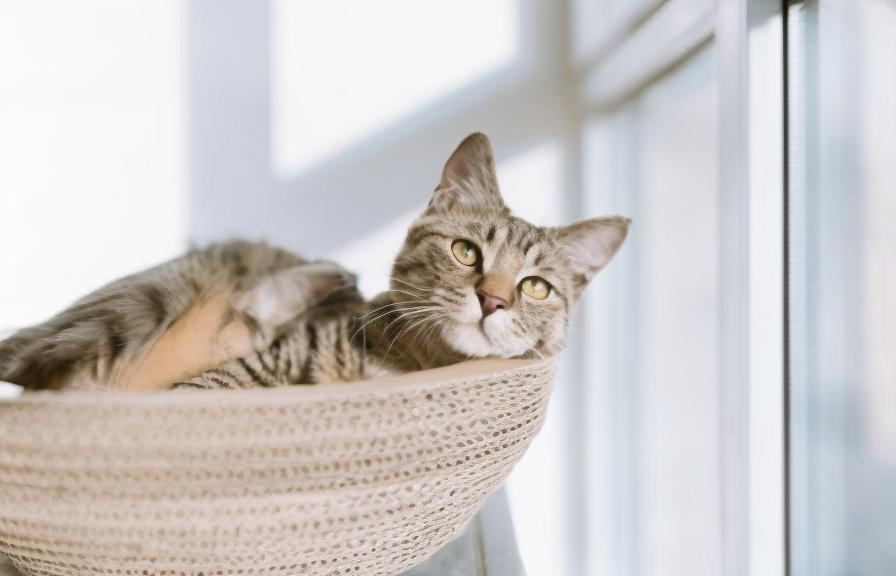
Before deciding to keep quail as pets, it’s important to be aware of any legal considerations that may apply in your area. Some regions have specific regulations regarding the keeping of quail, including restrictions on the number of birds that can be kept or requirements for obtaining permits or licenses. It’s important to research local laws and regulations before acquiring pet quail to ensure compliance with any legal requirements.
In addition to local regulations, it’s also important to consider any homeowners’ association rules or rental agreements that may impact the keeping of quail on your property. Some housing communities may have restrictions on keeping poultry or other animals that could affect your ability to keep pet quail.
It’s also important to consider the ethical implications of keeping quail as pets and ensure that you are able to provide a suitable living environment that meets their specific needs. This includes providing adequate space, shelter, food, water, and veterinary care.
Overall, being aware of any legal considerations and ethical responsibilities is essential for ensuring the well-being of pet quail and maintaining compliance with local regulations.
Conclusion and Final Considerations for Keeping Quail as Pets
Keeping quail as pets can be a rewarding experience for bird enthusiasts and those looking for a unique addition to their backyard or homestead. Quails are known for their gentle nature, low maintenance, and ability to adapt to various living conditions. They are also relatively quiet birds, making them suitable for those living in close quarters with neighbors.
When considering keeping quail as pets, it’s important to be aware of their specific care and housing requirements, including providing a secure enclosure with adequate space, ventilation, and access to clean water. Feeding and nutrition are also crucial aspects of caring for pet quail, requiring a well-balanced diet that includes seeds, grains, fruits, vegetables, protein sources, and access to fresh water at all times.
Maintaining the health of pet quail is essential for their overall well-being, requiring regular health checks by a qualified avian veterinarian and preventative care such as good hygiene practices and access to enrichment activities.
Understanding the behavior and social needs of pet quail is essential for providing them with a fulfilling living environment that meets their specific needs.
Before acquiring pet quail, it’s important to be aware of any legal considerations that may apply in your area, including local regulations regarding the keeping of quail and any homeowners’ association rules or rental agreements that may impact your ability to keep pet quail.
Overall, keeping quail as pets can be a rewarding experience when done responsibly with careful consideration of their specific care requirements and legal considerations. With proper care and attention, pet quail can thrive in a domestic setting while providing companionship and potential egg production for their owners.
If you’re considering keeping a quail as a pet, you may also be interested in learning about the compatibility of guinea fowl with chickens. Poultry Wizard’s article on “Can Guinea Fowl Live with Chickens?” provides valuable insights into the dynamics of raising these two bird species together. Understanding the interactions between different types of poultry can help you create a harmonious and thriving environment for your feathered friends.
FAQs
What is a quail?
A quail is a small ground-dwelling bird that is part of the pheasant family. There are many different species of quail found around the world.
Can I keep a quail as a pet?
Yes, quail can be kept as pets. They are relatively low-maintenance and can be kept in a backyard or in a suitable indoor enclosure.
What do quail eat?
Quail are omnivores and eat a diet of seeds, insects, and small plants. They can be fed a commercial game bird feed or a mixture of seeds and grains.
What kind of housing do quail need?
Quail need a secure enclosure that protects them from predators and provides them with enough space to move around. They also need a sheltered area to protect them from the elements.
Are quail social animals?
Quail are social birds and should be kept in groups of at least 3-4 individuals. They thrive in the company of their own kind.
Do quail require any special care?
Quail require regular access to clean water, a balanced diet, and protection from extreme temperatures. They also need regular cleaning of their enclosure to maintain their health.
Can quail be trained?
Quail can be trained to some extent, but they are not as easily trainable as other domesticated birds like chickens. They can learn to recognize their owners and may become more comfortable with human interaction over time.
Meet Walter, the feathered-friend fanatic of Florida! Nestled in the sunshine state, Walter struts through life with his feathered companions, clucking his way to happiness. With a coop that’s fancier than a five-star hotel, he’s the Don Juan of the chicken world. When he’s not teaching his hens to do the cha-cha, you’ll find him in a heated debate with his prized rooster, Sir Clucks-a-Lot. Walter’s poultry passion is no yolk; he’s the sunny-side-up guy you never knew you needed in your flock of friends!

